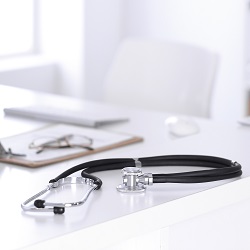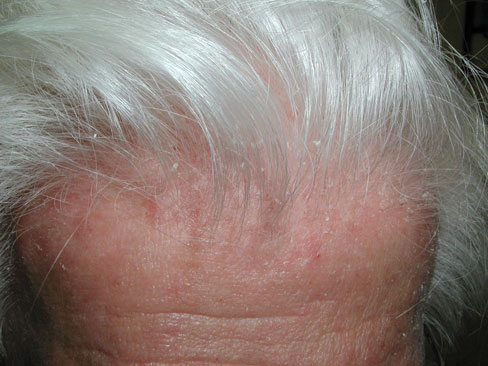Use caution with colchicine's many drug interactions
A coauthor of “The Top 100 Drug Interactions” offers advice for improved management of colchicine.
Just because a drug has been around for millennia doesn't mean it's perfectly safe. Aspirin is a well-known example of this, and colchicine is another. Given its long history, “Colchicine was not ever really officially approved by the FDA,” said Philip Hansten, PharmD. “It's been used since Roman times, and some people think the Egyptians even used it.”
About a decade ago, Dr. Hansten, an expert on drug-drug interactions and coauthor of “The Top 100 Drug Interactions,” developed a deeper interest in colchicine and its potential adverse effects. Last December, he and colleagues published evidence-based recommendations for improved management of colchicine drug interactions in Drug Safety, including detailed tables and algorithms.
“Colchicine is a useful drug for a wide range of disorders and is usually safe when used in appropriate doses given the patient's renal function,” he and his coauthors wrote. “Numerous drugs are capable of causing colchicine toxicity, however, and given that colchicine toxicity is potentially fatal and difficult to treat, it is imperative that every effort be made to avoid placing patients at risk from these drug interactions.”
Dr. Hansten, a professor emeritus at the University of Washington in Seattle, recently spoke to ACP Internist about colchicine and offered advice for internal medicine physicians.
Q: Colchicine is used in gout, of course, but what else is it used for?
A: Increasingly, colchicine is used following myocardial infarctions (MIs) and for other cardiac uses. It can be effective for preventing arrhythmias after cardiac surgery, and it's used for pericarditis. Now, the thing that's important to remember is that post-MI use is long-term, low-dose. If you're using it low-dose, long-term for cardiology, the risk for drug interaction problems is low. It's not zero, but it's low. That's important to remember, because cardiologists don't have to worry so much if they're using colchicine that way. For many of the other uses, such as dermatology or familial Mediterranean fever, those people take pretty substantial doses. People taking substantial chronic doses of colchicine are susceptible to these drug interactions.
Q: How should physicians educate themselves about possible interactions?
A: This is a tough one because of the volume of the data. There's so much information on drug interactions out there … and it's just impossible for physicians to be able to access all of that information. There are all sorts of computer programs to help physicians and pharmacists with this, but because there are so many interactions … physicians and pharmacists get constant alerts, and they get alert fatigue. This results in them not being really sure which are important, even though the computer systems try to put them in categories, and many alerts can get ignored.
Q: How can physicians overcome this problem?
A: What I would recommend is for physicians prescribing colchicine to think about the kinds of drugs they use a lot. Memorizing some of the information is really helpful. For example, statins often come up. Many people on statins can take colchicine and they do not have a problem. There have been a lot of statements made about statins and colchicine interactions that are too far one way and too far the other way. There are people who said, “You don't have to ever worry about statins, they're just fine,” and there are other people at the other end who say, “Oh, you know, the sky is falling, they're terrible.”
The truth is in between: The truth is that it can be a problem, but in most patients it does not appear to be. The risk is higher for some statins than for others. For pravastatin and rosuvastatin, the risk is probably very low. It depends on the statin, number one, and it depends on the individual. In most cases [statins and colchicine] can be used together.
Some of the antifungal drugs can be a serious problem, some of the antibiotics, some of the HIV drugs. There are maybe six or seven categories of drugs that can really cause serious problems. Just familiarize yourself and keep in your own mind the kinds of things that can potentially be a problem. Then, every time you get an EHR alert, you're not forced to try to figure out, “Well, is this real or not?” Try to educate yourself as much as possible. There are certain mechanisms of colchicine drug interactions that are common, and if you know those mechanisms, then that could allow you to reason out what drugs could interact.
Q: What else should physicians watch for when they prescribe colchicine?
A: There are some general side effects that are kind of nonspecific and fairly common, like diarrhea. … If a patient on colchicine has severe diarrhea, then that should be a reason for them to contact their physician. But even more important would be muscle pain and muscle weakness. Now, the problem is that colchicine when combined with some other drugs, especially the [high-risk] statins, can cause myopathy. It's really important to identify that quickly.
There are some horrific cases in the literature. I reviewed every case report ever published on colchicine drug interactions, about 100 of them, and I can't tell you the number of times that somebody had this muscle pain and had not been told that it is a warning sign. They kept taking the colchicine, sometimes for days or weeks afterwards, it got worse and worse and worse, and then they ended up with a really severe problem.
Colchicine toxicity, once it gets to be severe, is very difficult to treat. The kidneys, especially, but also the liver can start to fail, and there's simply no way to get rid of the colchicine. You can't dialyze it. People with severe toxicity, sometimes after they stopped taking it, three weeks later they still have colchicine in their system. Once it gets to a certain point, colchicine toxicity is extraordinarily difficult to solve, so that's why early detection is so important.
Muscle pain and muscle weakness are both warning signs, and they don't have to occur together. People sometimes think first muscle pain, then weakness, but it can be either one by itself. The other thing that goes along with that, the triad, is dark urine. The darkened urine is from myoglobin that's from muscle damage. That's the triad that you really want to look for and tell patients to look for.
The other thing that colchicine does which can kill patients is that it causes suppression of the bone marrow. They stop making white cells, they stop making red cells, they stop making platelets, and that obviously can cause bleeding, infections, and all sorts of really serious problems. Any sign of infection or any sign of bleeding—those would be two clear things that patients on colchicine need to be on the lookout for.
Finally, patient education for people on colchicine is really important. If every patient whose colchicine toxicity ended up in a medical journal had been warned and listened to their physician about this, many probably wouldn't have died and many would have had much less severe colchicine toxicity, because they would have sought attention sooner.




